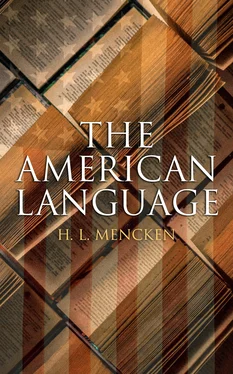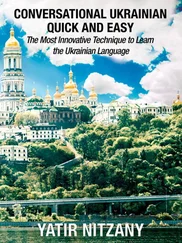This gigantic pummelling, in the long run, was destined to encourage an independent spirit in the national literature, if only by a process of mingled resentment and despair, but for some time its chief effect was to make American writers of a more delicate aspiration extremely self-conscious and diffident. The educated classes, even against their will, were influenced by the torrent of abuse; they could not help finding in it an occasional reasonableness, an accidental true hit. The result, despite the efforts of Channing, Knapp and other such valiant defenders of the native author, was uncertainty and skepticism in native criticism. "The first step of an American entering upon a literary career," says Lodge, writing of the first quarter of the century, "was to pretend to be an Englishman in order that he might win the approval, not of Englishmen, but of his own countrymen." Cooper, in his first novel, "Precaution," chose an English scene, imitated English models, and obviously hoped to placate the critics thereby. Irving, too, in his earliest work, showed a considerable discretion, and his "History of New York," as everyone knows, was first published anonymously. But this puerile spirit did not last long. The English onslaughts were altogether too vicious to be received lying down; their very fury demanded that they be met with a united and courageous front. Cooper, in his second novel, "The Spy," boldly chose an American setting and American characters, and though the influence of his wife, who came of a Loyalist family, caused him to avoid any direct attack upon the English, he attacked them indirectly, and with great effect, by opposing an immediate and honorable success to their derisions. "The Spy" ran through three editions in four months; it was followed by his long line of thoroughly American novels; in 1834 he formally apologized to his countrymen for his early truancy in "Precaution." Irving, too, soon adopted a bolder tone, and despite his English predilections, he refused an offer of a hundred guineas for an article for the Quarterly Review, made by Gifford in 1828, on the ground that "the Review has been so persistently hostile to our country that I cannot draw a pen in its service."
The same year saw the publication of the first edition of Webster's American Dictionary of the English language, and a year later followed Samuel L. Knapp's "Lectures on American Literature," the first history of the national letters ever attempted. Knapp, in his preface, thought it necessary to prove, first of all, that an American literature actually existed, and Webster, in his introduction, was properly apologetic, but there was no real need for timorousness in either case, for the American attitude toward the attack of the English was now definitely changing from uneasiness to defiance. The English critics, in fact, had overdone the thing, and though their clatter was to keep up for many years more, they no longer spread terror or had much influence. Of a sudden, as if in answer to them, doubts turned to confidence, and then into the wildest sort of optimism, not only in politics and business, but also in what passed for the arts. Knapp boldly defied the English to produce a "tuneful sister" surpassing Mrs. Sigourney; more, he argued that the New World, if only by reason of its superior scenic grandeur, would eventually hatch a poetry surpassing even that of Greece and Rome. "What are the Tibers and Scamanders," he demanded, "measured by the Missouri and the Amazon? Or what the loveliness of Illysus or Avon by the Connecticut or the Potomack?"
In brief, the national feeling, long delayed at birth, finally leaped into being in amazing vigor. "One can get an idea of the strength of that feeling," says R. O. Williams, "by glancing at almost any book taken at random from the American publications of the period. Belief in the grand future of the United States is the key-note of everything said and done. All things American are to be grand—our territory, population, products, wealth, science, art—but especially our political institutions and literature. The unbounded confidence in the material development of the country which now characterizes the extreme northwest of the United States prevailed as strongly throughout the eastern part of the Union during the first thirty years of the century; and over and above a belief in, and concern for, materialistic progress, there were enthusiastic anticipations of achievements in all the moral and intellectual fields of national greatness."10 Nor was that vast optimism wholly without warrant. An American literature was actually coming into being, and with a wall of hatred and contempt shutting in England, the new American writers were beginning to turn to the Continent for inspiration and encouragement. Irving had already drunk at Spanish springs; Emerson and Bayard Taylor were to receive powerful impulses from Germany, following Ticknor, Bancroft and Everett before them; Bryant was destined to go back to the classics. Moreover, Cooper and John P. Kennedy had shown the way to native sources of literary material, and Longfellow was making ready to follow them; novels in imitation of English models were no longer heard of; the ground was preparing for "Uncle Tom's Cabin." Finally, Webster himself, as Williams demonstrated, worked better than he knew. His American Dictionary was not only thoroughly American: it was superior to any of the current dictionaries of the English, so much so that for a good many years it remained "a sort of mine for British lexicography to exploit."
Thus all hesitations disappeared, and there arose a national consciousness so soaring and so blatant that it began to dismiss all British usage and opinion as puerile and idiotic. William L. Marcy, when Secretary of State under Pierce (1853-57), issued a circular to all American diplomatic and consular officers, loftily bidding them employ only "the American language" in communicating with him. The Legislature of Indiana, in an act approved February 15, 1838, establishing the state university at Bloomington,11 provided that it should instruct the youth of the new commonwealth (it had been admitted to the Union in 1816) "in the American, learned and foreign languages ... and literature." Such grandiose pronunciamentos well indicate and explain the temper of the era.12 It was a time of expansion and braggadocia. The new republic would not only produce a civilization and a literature of its own; it would show the way for all other civilizations and literatures. Rufus Wilmot Griswold, the enemy of Poe, rose from his decorous Baptist pew to protest that so much patriotism amounted to insularity and absurdity, but there seems to have been no one to second the motion. It took, indeed, the vast shock of the Civil War to unhorse the optimists. While the Jackson influence survived, it was the almost unanimous national conviction that "he who dallies is a dastard, and he who doubts is damned."
§ 2
The Language in the Making
Table of Contents
—All this jingoistic bombast, however, was directed toward defending, not so much the national vernacular as the national beautiful letters. True enough, an English attack upon a definite American locution always brought out certain critical minute-men, but in the main they were anything but hospitable to the racy neologisms that kept crowding up from below, and most of them were eager to be accepted as masters of orthodox English and very sensitive to the charge that their writing was bestrewn with Americanisms. A glance through the native criticism of the time will show how ardently even the most uncompromising patriots imitated the Johnsonian jargon then fashionable in England. Fowler and Griswold followed pantingly in the footsteps of Macaulay; their prose is extraordinarily ornate and self-conscious, and one searches it in vain for any concession to colloquialism. Poe, the master of them all, achieved a style so elephantine that many an English leader-writer must have studied it with envy. A few bolder spirits, as we have seen, spoke out for national freedom in language as well as in letters—among them, Channing—but in the main the Brahmins of the time were conservatives in that department, and it is difficult to imagine Emerson or Irving or Bryant sanctioning the innovations later adopted so easily by Howells. Lowell and Walt Whitman, in fact, were the first men of letters, properly so called, to give specific assent to the great changes that were firmly fixed in the national speech during the half century between the War of 1812 and the Civil War. Lowell did so in his preface to the second series of "The Biglow Papers." Whitman made his declaration in "An American Primer." In discussing his own poetry, he said: "It is an attempt to give the spirit, the body and the man, new words, new potentialities of speech—an American, a cosmopolitan (for the best of America is the best cosmopolitanism) range of self-expression." And then: "The Americans are going to be the most fluent and melodious-voiced people in the world—and the most perfect users of words. The new times, the new people, the new vistas need a new tongue according—yes, and what is more, they will have such a new tongue." To which, as everyone knows, Whitman himself forthwith contributed many daring (and still undigested) novelties, e. g. , camerado , romanza , Adamic and These States .
Читать дальше












